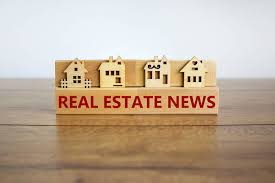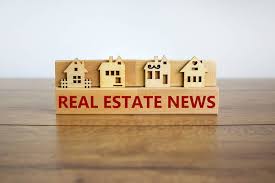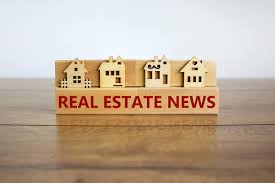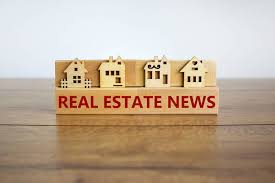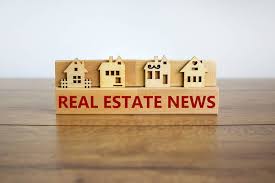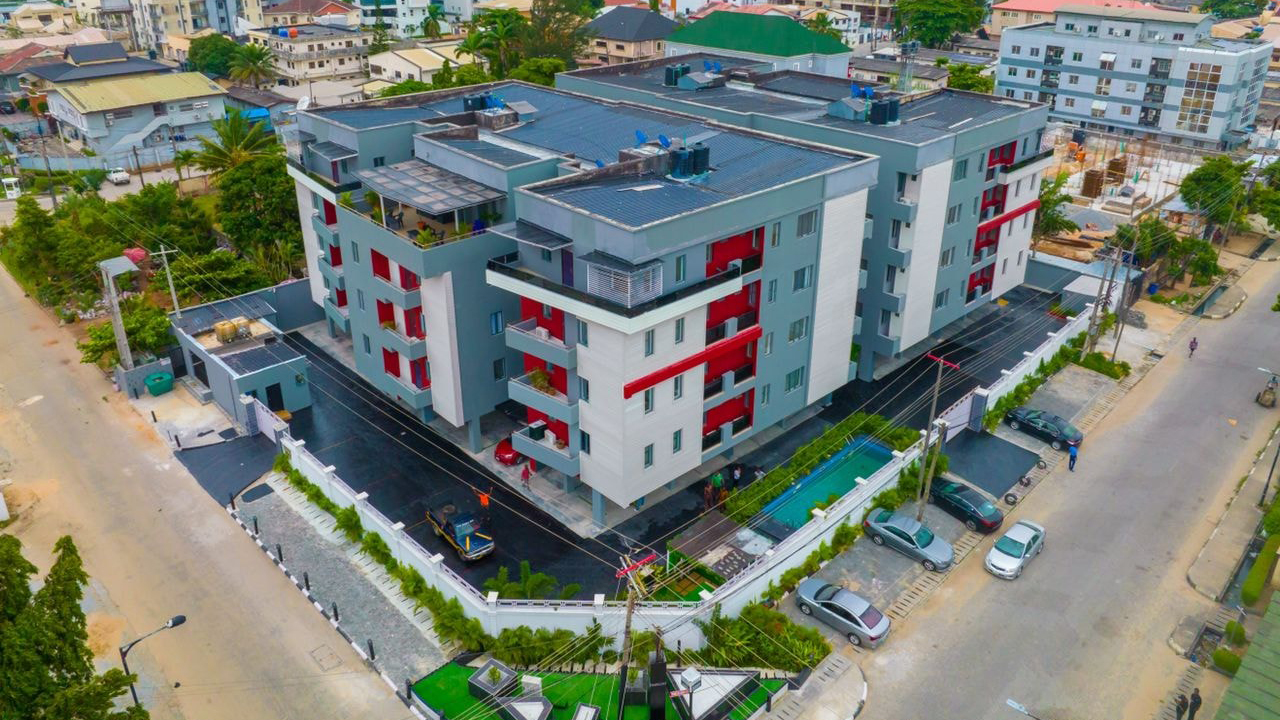
Why housing affordablility remains elusive for Nigerians
With the current economic realities affecting all sectors, providing affordable housing, particularly for low-income groups has become a daunting task among property developers, which has further compounded the cost of living among Nigerians.
More worrisome is that the population keeps growing and is estimated at approximately 218 million, with a ten-year average growth of about 2.6 percent, according to Nigerian Exchange Group (NGX) figures.
The increasing growth has engendered unprecedented migration of rural dwellers to urban areas, with an urbanization rate of 4.95 percent, putting strain on available housing and other facilities in cities.
Findings revealed that most households spend over 50 percent of their disposable income on housing as the Federal Government struggles to meet housing demand estimated at 22 million.
However, despite housing programs by the Federal, state governments, and private developers, who contribute the highest number of units yearly to the market, an estimated two-thirds of people in cities like Lagos, Port Harcourt, Ibadan, Abuja, and other metropolises still live in informal accommodations, suburbs or slums.
The cost of building materials is taking homeownership far beyond the reach of many, who fall within the low-income segment. For instance, prices of essential building materials like cement, iron rods, roofing sheets; paint, sand, and others rose by over 50 percent in the last two years.
The Guardian housing market survey last week showed that a newly built one-bedroom flat in some locations including suburbs is as high as N500, 000, two bedroom N750, 000 and three bedroom has risen to between N900, 000 and N1million. It requires ingenuity for a young family earning N30, 000 monthly to save N500, 000 within two years to rent a one-bedroom flat.
In places like Abule Egba and Ogudu, a plot of land now goes for N15 million and N80 million respectively, Banana Island from N500 million, in Eko Atlantic City it ranges between N1.2 billion and N1.5 billion.
To build a moderately furnished one-bedroom flat in cities like Abuja and Lagos will cost between N2.5m and N3m aside from the cost of land. The current high rent in cities has driven people to slums and shanties, while others live in dilapidated buildings prone to collapse or quat under bridges or live in uncompleted buildings.
Experts say market forces, foreign exchange crisis, naira devaluation, inflation, lack of finance for homes, unfriendly policy, inaccessibility to land, poor mortgage regime, and demographic changes, make it difficult to increase access to affordable housing for renters and homeownership.
The Managing Partner, RefinHomes Ltd, a property development company, Olatunde Macauley, said affordable housing is a major challenge, which is essentially hinged on the cost of land that is consistently on the increase, the cost of building materials, and issues associated with the financing of projects.
“There are mortgage banks but the mortgages are highly priced at about 19 percent, whereas mortgages should be single digit and long-term spanning about 30 years. Typical mortgages in Nigeria are 10 years and at 19 percent, which is expensive. Very few people have the capacity to afford it,” Macauley said.
However, he said if there are structured payment plans where people can pay a certain amount monthly, more people will be able to afford to house.
Macauley said the government at all levels needs to actively drive affordable housing provision for Nigerians by ensuring an enabling environment for private developers.
He said: “Private sector operators are trying their best but there are difficulties in obtaining building approvals, which is still tedious and could be expensive. We need an environment that will make it easier to acquire land and title from the government.
“The government has to give us incentives to go into low-income housing. Investors are bothered because you invest so much but the returns are so little and so they rather go into medium or luxury apartments.
“There is the National Housing Fund (NHF) at six percent and N15million maximum and 30 years, but access to it is still very difficult, it takes a long time to access. If it were easier, a lot of people would be able to access housing through the platform because it is enabled by the government.”
The immediate past Chairman, Nigerian Institution of Estate Surveyors and Valuers (NIESV), Lagos branch, Dotun Bamigbola, said with high inflation and high exchange rate, the challenge of housing affordability has doubled.
“The minimum wage of N30, 000 is only applicable for the public sector and not all states are paying it. As it varies from state to state, the cost of housing has moved up. Rent and property acquisition costs are going up. If income is not in parity with these, the capacity of any individual to buy houses will be dependent on extra income.”
He said there are disparities in the rental market, from residential to commercial, adding that some people are finding a way out by moving from locations of high rents to lower property value, migrating to other countries and reduction of sizes as a way out.
He added that because of the situation, developers who used to develop bigger apartments are now shifting to smaller apartments/flats.
“To own a home for someone who earns N30, 000, minimum wage, he/she will have to set aside 33per cent of yearly income, which is N9, 900 and N118, 800 per year. To buy a house worth a million, it will take 294 years.”
According to him, at that rate, not everybody can own a house but everybody can be accommodated in a house.
The Chief Operating Officer/Director, Research at NorthCourt Real Estate, Ayo Ibaru, said the current economic situation calls for budgetary adjustments to discretionary spending to meet rent obligations.
The low-income earners, he said, typically bear a disproportionate share of the consequences of Nigeria’s economic difficulties with little disposable income and much less for savings, and investing in property becomes challenging.
“Housing affordability for this income again depends on the location and property features. There is generally a mismatch between desired locations and asset prices. Average prices in the urban areas of Nigeria’s core cities are high – a result of strong demand, which in itself is based on infrastructure, security, and accessibility features. In challenging economic times, these prices further escalate.
“In Nigeria, cooperative societies through the periodic contributions of its members have long been a system for buying ticket items, especially in the informal sector.”
“There are now some initiatives aimed at bringing cooperatives as a tool for homeownership into the mainstream,” he explained.
Source: Guardian.ng
Similar Topics
The Lagos State Government has commenced the demolition of illegal structures within the Lekki Free...
a month ago Read MoreNigeria’s recently enacted Tax Act of 2025 (NTA 2025), which becomes effective on January 1,...
a month ago Read MoreMember States of the United Nations Human Settlements Programme (UN-Habitat) have endorsed a new...
2 months ago Read MoreNigeria Enters a New Tax Era Come January 2026, Nigeria’s property market will experience a...
3 months ago Read MoreImproved Security and Diaspora Capital Drive Rebound The housing sector in Nigeria’s...
3 months ago Read MoreThe Lagos State Government has announced that night-time repair works will take place on Ozumba...
4 months ago Read MoreThe Federal Government has suspended all previously approved, pending, and prospective applications...
5 months ago Read MoreThe Federal Government has successfully mobilised more than N70 billion in private capital...
5 months ago Read MoreThe Lagos State Government, through the Lagos State Physical Planning Permit Authority (LASPPPA),...
7 months ago Read MoreThe Federal Government has expanded the Abuja-Kaduna-Kano Road project to incorporate a direct...
7 months ago Read MoreThe Federal Capital Territory Administration (FCTA) has taken possession of Wadata Plaza, the...
8 months ago Read MoreDefaulters on FCT ground rent now have 14 days grace to pay up what they owe the FCT Administration...
8 months ago Read MoreUnprofessional practices by estate agents in major cities are significantly influencing the spike...
8 months ago Read MoreA Real estate development firm, Lifecard International Investment Company, has revealed that many...
9 months ago Read MoreDespite a fall in investment volumes from the 2021 peak, there is an ongoing desire for property...
9 months ago Read MoreThe Lagos State government has advised the leadership of the Nigerian Institution of Estate...
9 months ago Read MoreReal estate market dynamics such as construction cost, land, finance, government policies and taxes...
9 months ago Read MoreEvent Set to Celebrate Managers Who Shape Careers and Drive Organizational Growth Business...
10 months ago Read MoreGlobal Leaders to Converge in Lagos for Landmark Event Driving Urban Innovation and...
10 months ago Read MoreIn a bold move to redefine affordable luxury housing, Nigerian real estate giant Gtext Holdings has...
10 months ago Read More


